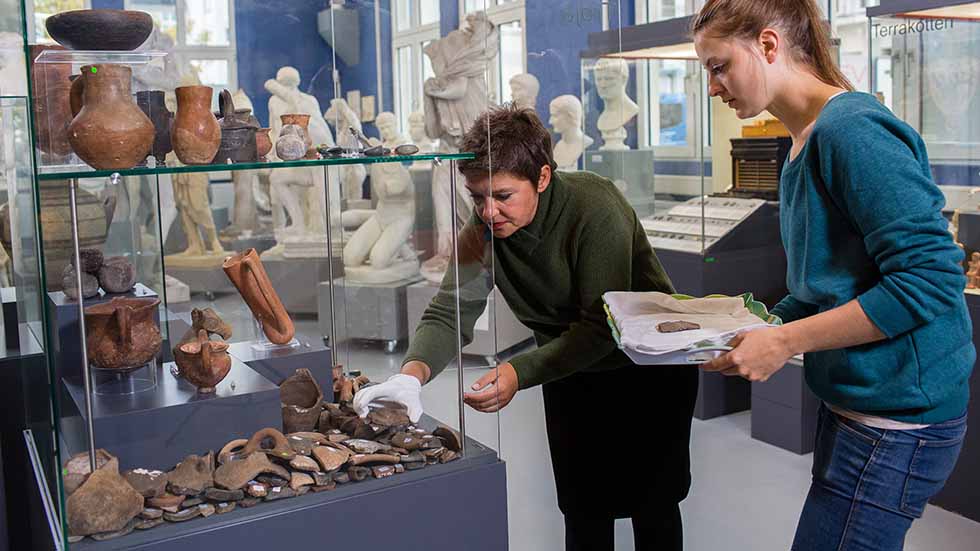Support making RiG more international!
Start SurveySupport making "Research in Germany" more international! Your expertise and commitment are the key to the further development of promoting the German research landscape. We invite you to take part in our online survey and share your valuable experiences and opinions. Duration: 7-10 min.
Please start the survey at the end of your visit.
The way to a professorship
If you would like to become a professor at a German university, you have to use the time after completing your doctorate to attain “eligibility for professorship” (Berufungsfähigkeit). Depending on your subject, research focus and academic interest, this postdoctoral qualification phase can differ considerably.
In a first postdoc phase – as a rule, two to four years after completion of a doctorate – you will gain research and, if necessary, teaching experience at a university or a non-university institute, and possibly in industry. You can also use this time to produce your own publications, engage in further training at congresses and develop your soft skills. International research experience can also be gained during this period of further training and qualification.
Experienced postdocs can then meet the requirements for appointment to a professorship with work on a habilitation treatise, a junior professorship or evidence of other academic accomplishments, such as a leadership position in a research group or in industry.

Qualifications for a university professorship
The prerequisites for appointment to a professorship at a university are a completed programme of higher education, pedagogical suitability and a special aptitude for academic work (usually an outstanding doctorate). Proof must also be furnished of additional academic achievements. Different paths are possible in Germany:
Most candidates qualify for a university professorship in Germany by means of the habilitation process. Traditionally, habilitation generally includes the production of a habilitation treatise and an examination process that certifies the ability to teach in an academic subject. As a rule, this can also be achieved “cumulatively” – in other words, through the publication of several peer-reviewed essays in prestigious specialist journals.
A junior professorship has meanwhile become an established alternative to habilitation. The focus here is on early independence in research and teaching. Junior professors are allowed to supervise doctorates, have teaching obligations and play an active role in academic administration. These professorships are temporary, are assessed and only some offer a tenure track option. Junior professorships are especially common in law, the economic sciences and social sciences, and in mathematics and the natural sciences.
Junior professorships are increasingly advertised as tenure track positions. After an evaluation that normally takes places after six years at the latest, the tenure track professor is given a tenured position.
These days, roughly three in ten junior professorships involve a tenure track. A joint federal and state government programme is providing one billion euros for 1,000 additional appointments until 2032.
Experienced postdocs can also develop their expertise in academic management and independent research and qualify for appointment to a professorship by leading their own research group. This is how excellent early career researchers at universities and large non-university research institutions prepare to take on positions of academic leadership.
International research experience is a helpful and occasionally even essential requirement – for example, for becoming leader of a Helmholtz Young Investigators Group.
Academic achievement equal to habilitation can also be proven without a formal procedure, for example, through research conducted outside the university. A position in a research-oriented company represents a promising path towards a university professorship in engineering. Traditionally, many appointments here go to engineers with doctorates who research and work in industry. Working for a company is also a good qualification for appointment to a professorship at a university of applied sciences.
Here you will find more information:
Professorship
Are you one of the best in your field? Then you should become a professor at a German higher education institution. Make a contribution to research and teaching in your subject.
